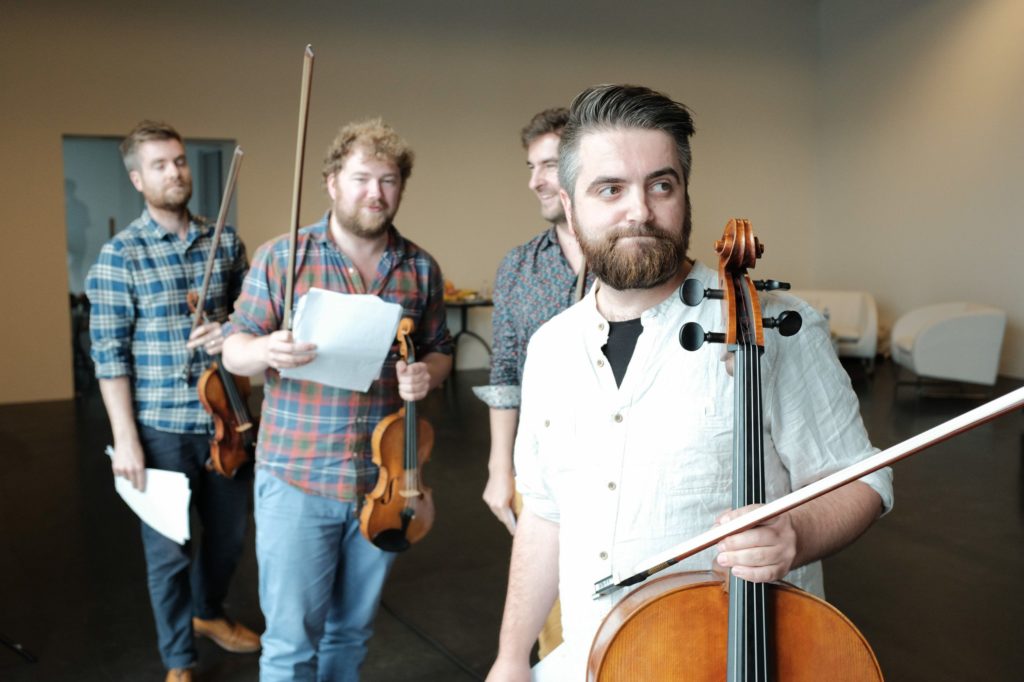
Maxwell String Quartet, BMS York Concerts, Sir Jack Lyons Concert Hall, University of York, March 8
WELL, the performance of Haydn’s iconic Quartet in E-flat major (Op.20 No.1) was breathtaking in its flawless technique, balance and engagement.
The opening lengthy Allegro seemed almost effortless in both the technical demands and instrumental interplay. The music is so intelligent, radically so, and the Maxwell String Quartet’s playing reflected and thrived on this.
The minuet (placed second), with its enigmatic trio, was thoroughly enjoyable. I loved the viola’s role in joining the party late and harmonically directing the listener back to the minuet via the back door of F minor. The Presto finale was bristling with vitality, rhythmic syncopations and rolling modulations. A great signing off.
But it was the Affettuoso e sostenuto which lingered. This is a quite extraordinary movement of real emotional depth and the performance delivered.
Quite extraordinary too, were the Quartet’s wonderful transcriptions or ‘impressionistic and sensitive reworkings’ of traditional Scottish Folk Worksongs. These were drawn from and inspired by explorations of traditional music drawn from “Scotland’s hardworking societies”: fishing, tweed and wool making and so forth.
The Quartet played these with as much care to detail – nuanced phrasing and insight – as they had brought to the Haydn. I liked the democratic reversal of violin leads too.
These were prefaced by a Scottish tune underpinned by a bagpipe cello drone aimed at irritating the ghost of Mendelssohn. The great man evidently disliked the traditional instrument. A nice touch.
Mendelssohn’s magnificent Quartet No.6 in F minor (Op.80) was written in response to the death of his beloved sister Fanny in May 1847. The choice of key here, F minor, deliberately reinforces the emotional tension since there will be greater tension on the strings.
This was helpfully explained by cellist Duncan Strachan, whose engaging, informative vocal commentary throughput the concert added a welcome layer of inclusivity and engagement.
The raw emotion was evident from the start of the Allegro vivace assai. The musical narrative was convincingly propelled forwards (echoes of late Beethoven Op.95) and right on the edge, leaving this listener feeling unsettled yet gripped.
The Allegro assai exploded in the same dramatically driven, angst-ridden direction. Not sure why, but I heard pre-echoes of Tippett, maybe the String Quartet No.2. Anyway, the stabbing, brutal syncopations here reinforced the mood of anger and despair; the dramatic shock being even greater as this is not what we expect in a civilised, traditional scherzo. Whilst in the contrasting trio section, the violins play a haunting, ethereal melody over cello and viola octaves.
Mercifully there was some respite in the form of the poignant Adagio. Here the playing captured the mood of tenderness, sadness and loss. But it is the calm before the musical storm and the closing Finale once again ripped forwards. The movement culminates in the first violin ratcheting up the already palpable tension to a thrilling, if decidedly defeated, conclusion. Quite something.
And that should have been that. Just spontaneous appreciation in the form of loud applause. But no, the Maxwell Quartet gave us an encore, two in fact. Back to Scottish folksong. Both beautifully played and very well received. It’s just that they unnecessarily diminished my experience of their remarkable performance of the Mendelssohn.
Review by Steve Crowther
